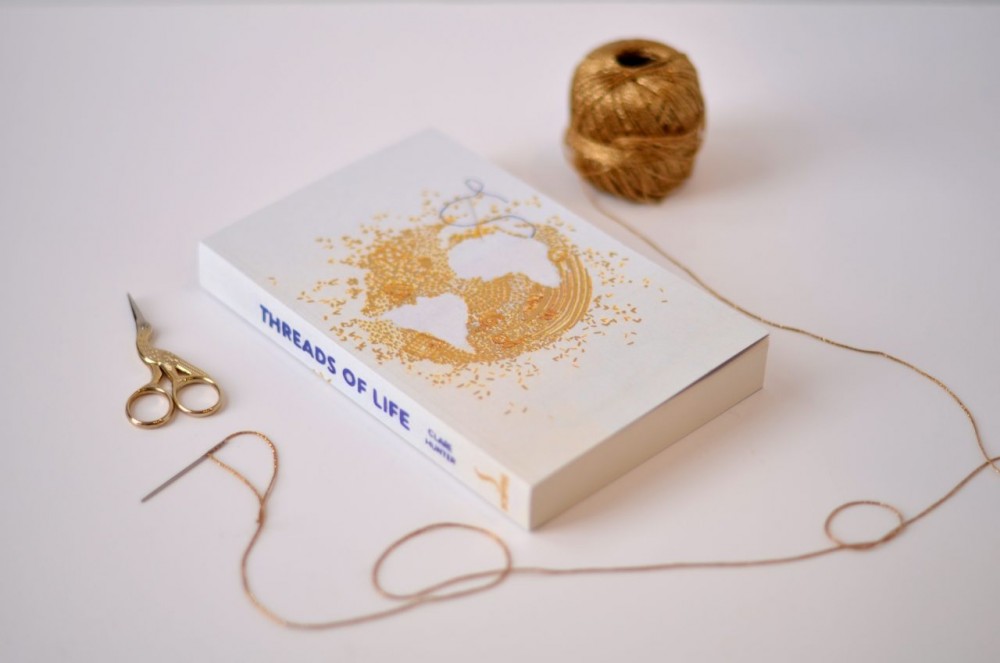Threads of Life: a History of the World through the Eye of a Needle

Threads of Life by Clare Hunter £20 (Sceptre)
Whatever our take on fashion, fundamentally we all have a connection with clothes because we all wear them. Sewing literally touches our daily lives. But it’s about more than fashion it’s more profound than that; sewing expresses political ideas and identity, too – think of beautiful protest banners at demonstrations, slogan T-shirts, the 1980s NAMES Project Foundation’s memorial quilt honouring those who died from Aids. Sewing is a way to be heard.
Hunter says: ‘[Sewing] has evolved, primarily, as the voice of women, who, through the centuries with limited access to literacy, or little assurance that if they did write, their words would be preserved, chose needlework as a medium to assert their presence in the hope that it, at least, might persist and, in time, be heard.’
This book can be seen as an example of a trend of titles on world history as viewed via a single subject but the difference here is that sewing is, traditionally, a more female-focused art. And its practice spans the basic and the beautiful, the everyday and the extraordinary. As Hunter says: ‘It fell to women to spin the thread and weave the cloth because it was something they could do near or at home, It was compatible with child rearing and cooking.’ This area of expertise was also aligned with the female power of creating life itself: ‘Spinning thread and weaving cloth, the bringing of something to existence where nothing had been before was, like conception and childbirth, mysterious to ancient tribes, even magical.’
Historical references to celebrated works like the Bayeux Tapestry and the tunics in Tutankhamun’s tomb are blended with personal reflections that readers will be able to relate to, like the moving conversation with her sisters after their mother’s death on what she should wear for her ‘final journey’, and recollections of her mother teaching her embroidery stitches (something my own grandma taught me).
And in case you’re wondering (or worried), you need no knowledge of how to wield a needle and thread to enjoy this book.
Author Clare Hunter is a textile artist who set up the NeedleWorks project in Glasgow, working with people of all ages to celebrate local culture through sewing, and belongs to a sewing group in the city.
Threads of Life by Clare Hunter £20 (Sceptre)
Adrienne Wyper writes about craft and other good stuff.
I don’t sew but I know how to sew! My adult daughter is always amazed when I can actually mend something successfully or embroider initials on to a gym bag for my grandchildren. I often have a bash at tweaking charity/vintage items which is great fun but I couldn’t ‘dress-make’ to save my life or knit a jumper from start to finish. I find ‘mending’ very therapeutic and relaxing – sitting with a heap of mending puts me in a time warp of women through the ages with their mending baskets. My nan taught me how to do basic sewing, embroidery and basic knitting when I was little in the 60’s and it is something that you never really forget – and I am glad that I didn’t. I confess ‘though that I failed to show my daughter, who will be unable to show her daughter (children! being sexist here – apologies). I did not do any form of sewing at school as it was not considered ‘academic’ enough at my olde worlde splendid young gals grammar school and so I shall be eternally gratefully to my lovely nan. Thanks, Nan! This book looks a beauty and I look forward to seeing it.